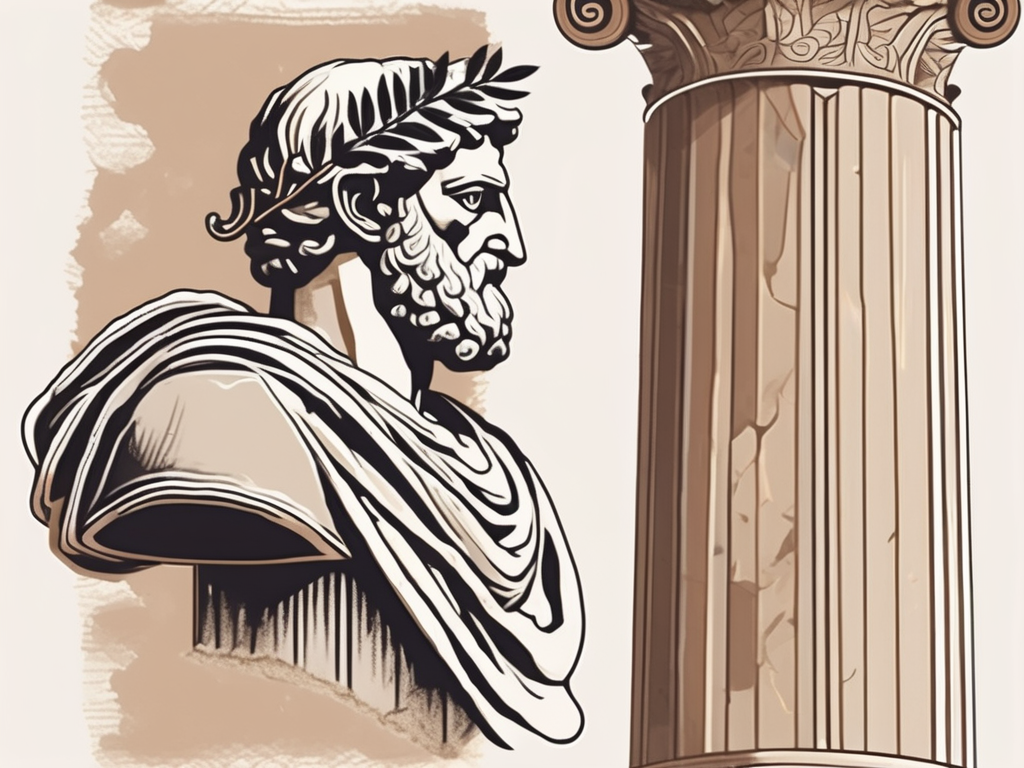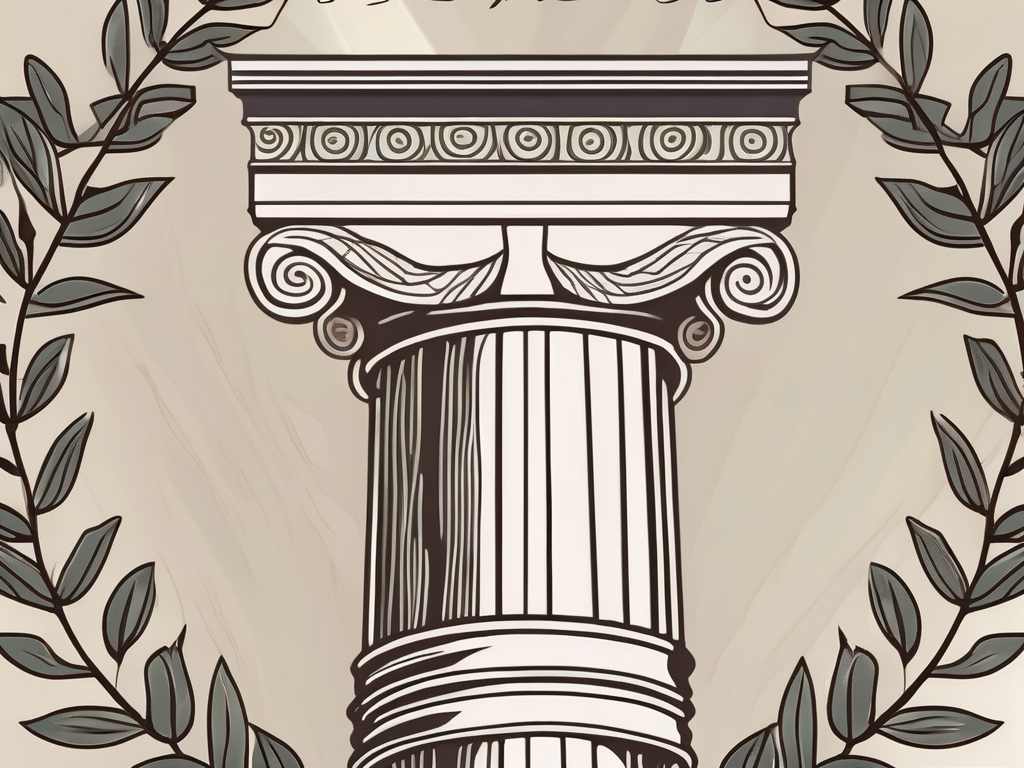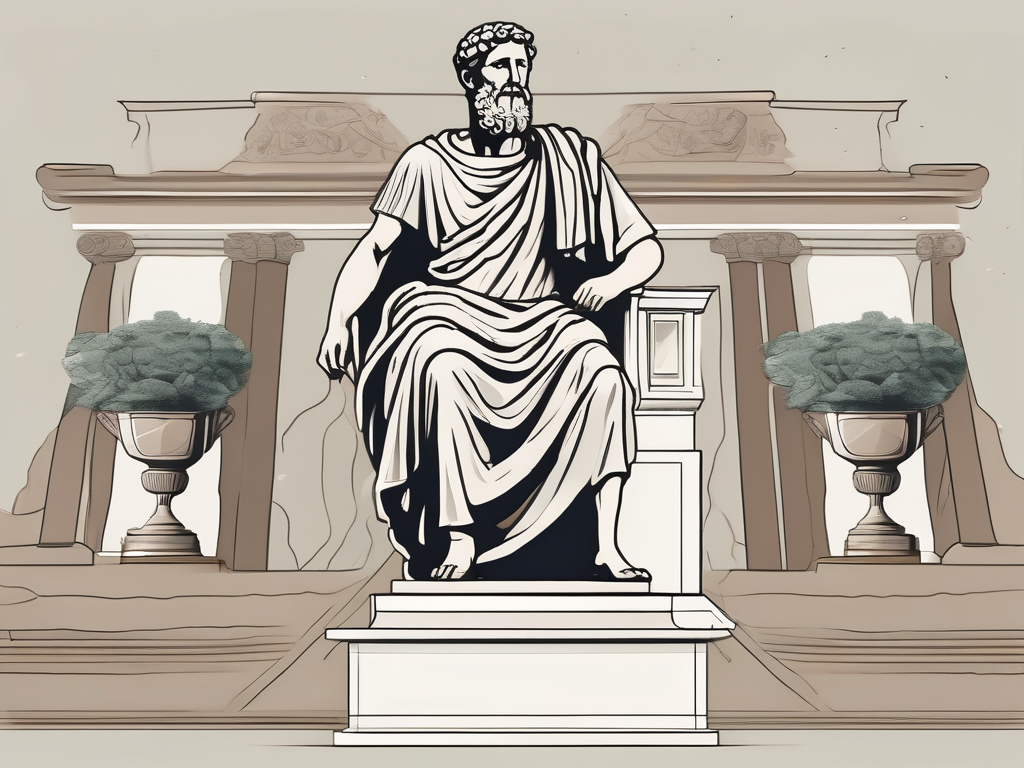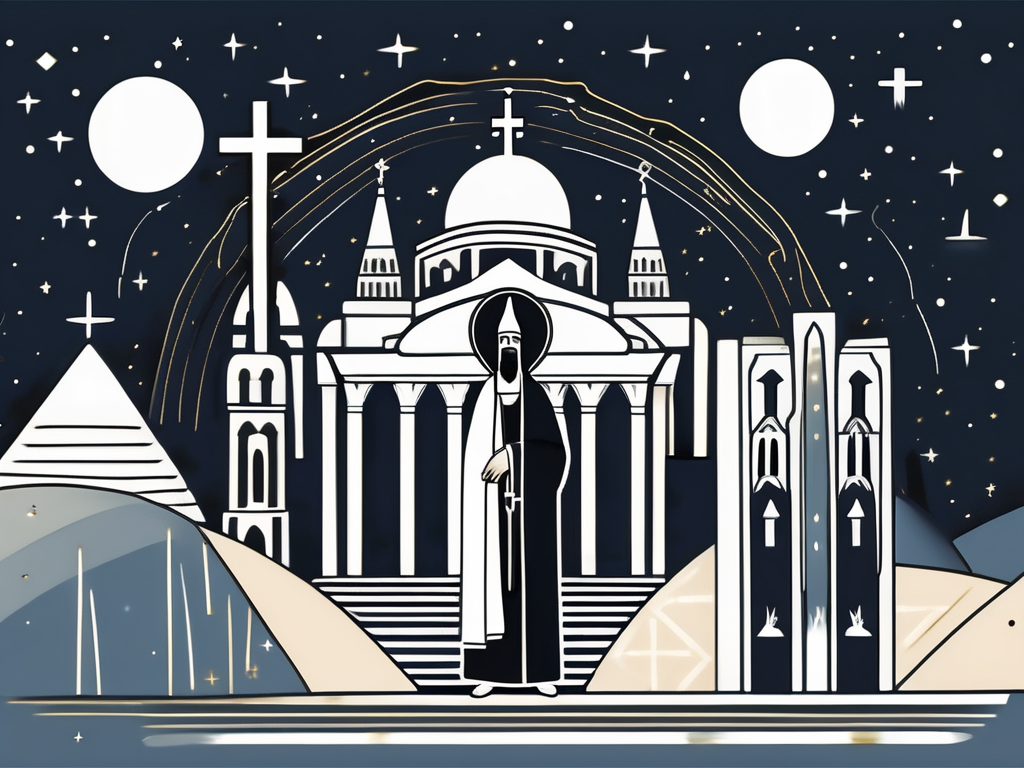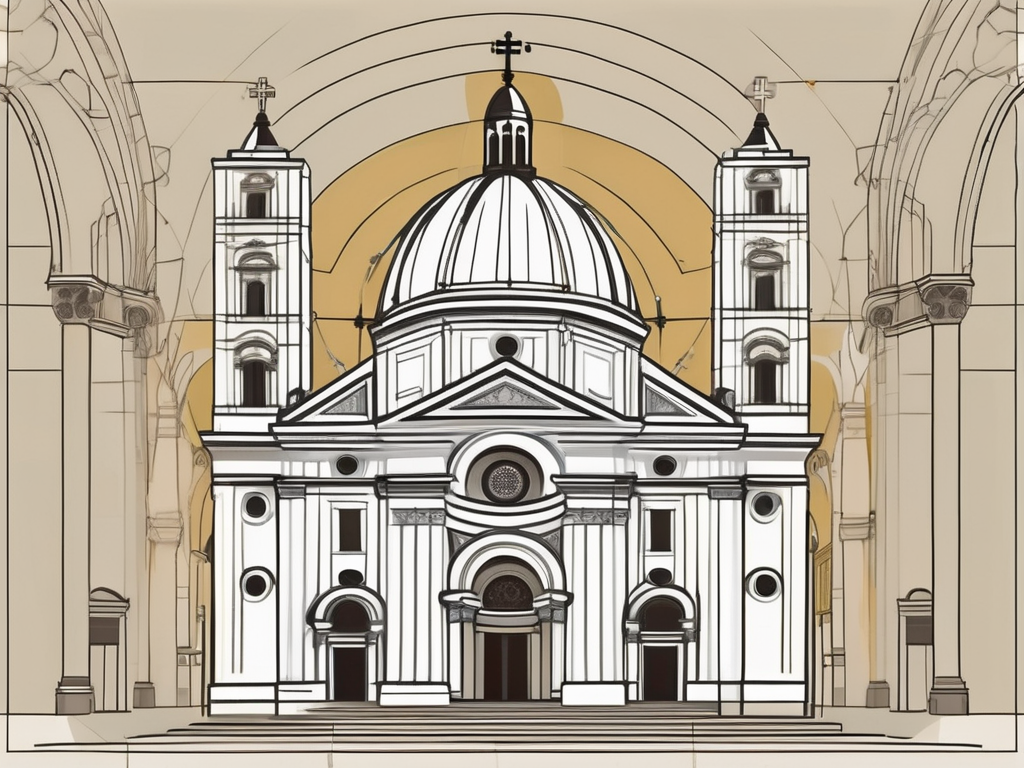Saint Augustine of Hippo was a prominent figure in the early Christian church, known for his profound theological insights and influential writings. In this article, we will explore the fascinating life and enduring teachings of this remarkable man.
Early Life of Saint Augustine
Saint Augustine, also known as Aurelius Augustinus, was born on November 13, 354 AD, in the city of Tagaste, which is present-day Algeria. His devout mother, Saint Monica, played a significant role in his spiritual upbringing, while his father, Patricius, was a pagan.
Despite being raised in a Christian household, Augustine embarked on a tumultuous journey before fully embracing his faith. His early years were marked by a strong intellect and an insatiable thirst for knowledge.
Birth and Childhood
Augustine’s birth and childhood were relatively serene, but he displayed signs of precociousness from an early age. His natural intelligence and inquisitive mind were evident to all who knew him. As a child, Augustine would spend hours exploring the lush landscapes surrounding Tagaste, marveling at the beauty of nature and contemplating the mysteries of the universe. His deep sense of wonder and curiosity laid the foundation for his future intellectual pursuits.
Tagaste, a bustling city in the Roman Empire, provided young Augustine with a rich cultural and educational environment. He was exposed to a diverse range of ideas, customs, and traditions, which broadened his perspective and fueled his thirst for knowledge. From an early age, Augustine displayed a remarkable aptitude for learning, quickly surpassing his peers in various subjects.
Education and Conversion
Leaving his hometown, Augustine pursued his education in Carthage, where he was exposed to various philosophical schools of thought. The vibrant intellectual atmosphere of Carthage captivated Augustine, and he eagerly delved into the teachings of renowned philosophers and scholars. His insatiable hunger for knowledge led him to explore different philosophical systems, seeking answers to life’s profound questions.
During this time, Augustine became immersed in the teachings of the Manichaeans, a religious sect that heavily influenced his beliefs. The Manichaeans’ dualistic worldview, which posited the existence of both good and evil forces, resonated with Augustine’s intellectual inclinations. He found solace in their teachings, believing that he had finally discovered the ultimate truth.
However, it was not until his encounter with the renowned Bishop Ambrose of Milan that Augustine underwent a profound conversion. Inspired by Ambrose’s eloquent sermons and intellectual prowess, Augustine realized the emptiness of his previous pursuits and committed himself to the Christian faith. The depth of Ambrose’s wisdom and his ability to reconcile reason and faith left an indelible mark on Augustine’s soul, igniting a transformative spiritual journey.
Augustine’s conversion marked a turning point in his life. He renounced his former beliefs and embraced Christianity wholeheartedly. From that moment on, he dedicated himself to the pursuit of truth, seeking to reconcile philosophy and theology, reason and faith, in his quest for a deeper understanding of God and the human condition.
Augustine’s Philosophical Journey
After his conversion, Augustine delved deeper into philosophy, seeking to reconcile his newfound faith with the worldly wisdom that had captivated him in his youth.
Augustine’s philosophical journey was a complex and multifaceted one, shaped by various influences and encounters. One of the most significant influences on his thinking was his time as a Manichaean devotee. The Manichaeans believed in the duality of good and evil, emphasizing the eternal struggle between these opposing forces. This belief system left a lasting impact on Augustine’s philosophical foundation, as he grappled with questions of morality and the nature of evil.
Influence of Manichaeism
Augustine’s immersion in Manichaean teachings provided him with a unique perspective on the world. The sect’s emphasis on the battle between good and evil resonated deeply with Augustine, who had previously been drawn to the allure of worldly pleasures. As he sought to reconcile his newfound faith with his past experiences, Augustine engaged in deep philosophical contemplation, exploring the implications of the Manichaean worldview.
However, as Augustine delved further into his studies, he began to question the limitations of Manichaean philosophy. He found himself yearning for a more comprehensive understanding of the world and the nature of God.
Encounter with Neoplatonism
It was during this period of searching that Augustine encountered Neoplatonism, a philosophical school of thought that would profoundly shape his intellectual development. Neoplatonism, founded by the renowned philosopher Plotinus, offered Augustine a new framework for understanding the existence of evil and the nature of God.
Augustine was captivated by Plotinus’ teachings, which emphasized the existence of a transcendent reality beyond the physical world. According to Neoplatonism, the material world was a mere reflection of this higher reality, and the ultimate goal of human existence was to ascend towards union with the divine.
For Augustine, Neoplatonism provided a bridge between his newfound Christian faith and his philosophical inquiries. The teachings of Plotinus allowed him to explore profound questions about the nature of God and the human soul, while also providing a framework for understanding the presence of evil in the world.
As Augustine delved deeper into Neoplatonic philosophy, he began to synthesize its teachings with his Christian beliefs, creating a unique and nuanced theological framework. This synthesis would become a cornerstone of Augustine’s later works, as he sought to reconcile the intellectual rigor of philosophy with the profound truths of Christianity.
Augustine’s philosophical journey was a testament to his intellectual curiosity and his unwavering commitment to seeking truth. His encounters with Manichaeism and Neoplatonism provided him with the tools and insights necessary to navigate the complex intersections of faith and reason, ultimately shaping his profound contributions to both philosophy and theology.
Augustine’s Theological Contributions
Augustine’s writings epitomize his intellectual prowess and his deep spiritual insights. His profound understanding of Christian theology has left an indelible mark on the development of religious thought. Two of his most significant contributions to Christian theology are his doctrines on Original Sin and Divine Grace.
Doctrine of Original Sin
In analyzing the nature of humanity, Augustine delved into the complexities of human existence, seeking to unravel the mysteries of our origins. He concluded that all humans inherit the original sin of Adam and Eve, a sin that reverberates throughout the generations. Augustine believed that this inherent sinfulness stains every aspect of human nature, corrupting our very being. This stain, he argued, makes salvation impossible without the grace of God.
Augustine’s doctrine of Original Sin challenges us to confront the reality of our flawed nature. It compels us to recognize the depths of our brokenness and the desperate need for redemption. By acknowledging the universality of sin, Augustine invites us to embark on a journey of self-reflection and repentance, ultimately leading to a profound encounter with God’s transformative grace.
Concept of Divine Grace
Augustine firmly believed that salvation was not a product of human effort or merit, but solely a result of God’s unmerited favor, or divine grace. In his theological framework, human beings are entirely dependent on this divine grace for redemption. No amount of good works or righteous deeds can earn salvation; it is purely a gift bestowed by a loving and merciful God.
Augustine’s concept of Divine Grace challenges the prevailing notion that salvation can be achieved through human striving alone. It reminds us of our inherent limitations and calls us to surrender our pride and self-sufficiency. By emphasizing our dependence on God’s grace, Augustine invites us into a posture of humility and receptivity, recognizing that our salvation is ultimately an act of divine love and compassion.
Through his profound insights into Original Sin and Divine Grace, Augustine invites us to grapple with the complexities of our human condition and to embrace the transformative power of God’s grace. His theological contributions continue to shape the way we understand ourselves, our relationship with God, and the nature of salvation.
Augustine as a Bishop
After his baptism, Augustine embarked on a career in the church. His deep knowledge and spiritual insights led him to become the Bishop of Hippo Regius, a flourishing seaport city in Roman Africa.
Pastoral Duties and Challenges
As a bishop, Augustine faced numerous challenges, including the responsibility of shepherding his flock and addressing theological controversies of the time. His insightful sermons and compassionate approach endeared him to his congregation.
Writings and Sermons
Augustine’s prolific writings remain a testament to his intellectual and spiritual influence. His works cover a vast range of topics, including theology, philosophy, ethics, and spirituality. Notable among his writings are “Confessions” and “The City of God,” which continue to inspire readers today.
Legacy of Saint Augustine
Saint Augustine’s legacy extends far beyond his lifetime. His teachings have had a profound impact on Western Christianity, shaping the development of church doctrine and the theological understanding of generations to come.
Influence on Western Christianity
Augustine’s profound insights into the human condition and his emphasis on God’s grace continue to shape Christian theology. His ideas on predestination and original sin have become foundational tenets of many Christian denominations.
Augustine’s Impact on Philosophy and Theology
Outside of Christianity, Augustine’s works have been highly influential in the realms of philosophy and theology. His writings on the concepts of time, the nature of evil, and the relationship between faith and reason have contributed to the development of philosophical thought throughout the centuries.
In conclusion, the life and teachings of Saint Augustine of Hippo have left an indelible mark on Christian theology and philosophy. His journey from an intellectually curious youth to a deeply committed bishop exemplifies the transformative power of faith and the pursuit of knowledge. Through his writings and spiritual insights, Augustine continues to inspire and challenge believers and seekers of truth alike.


